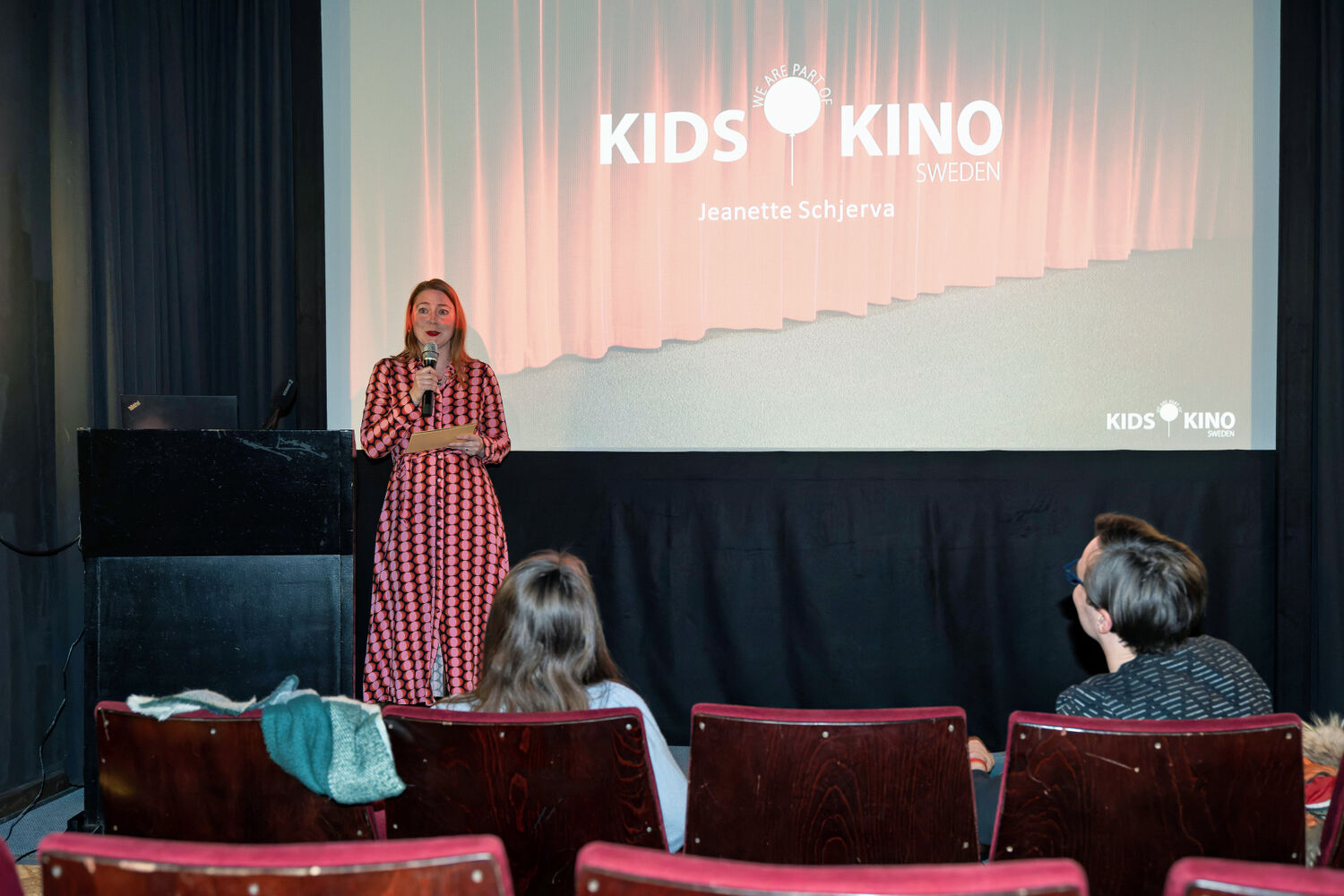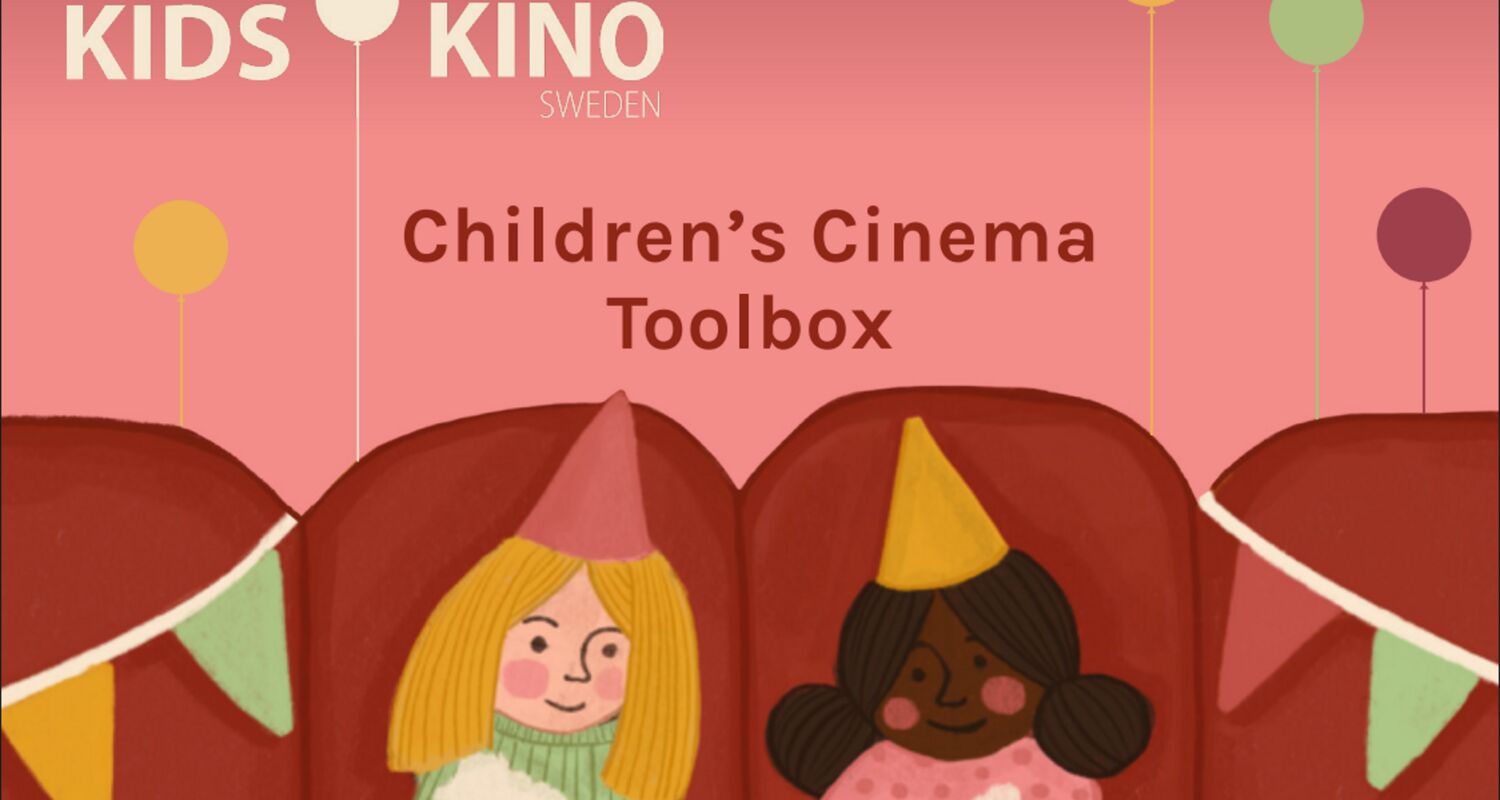Building Young Audiences with the Kids Kino Toolbox
The future of film lies with young people, but engaging children and teenagers with arthouse cinema can be challenging. Tackling this problem is central to the work of Jeanette Schjerva, Commissioner for Screenings & Festivals at Swedish regional film fund Film i Skåne. Jeanette is part of Kids Kino, a network which helps cinemas across Sweden connect with young audiences. For a recent ACT Alumni Meeting at Berlinale 2025, Jeanette presented the Kids Kino Toolbox, a new resource for venues who want to build connections with younger cinemagoers.
Below, Jeanette explains the thinking behind the Toolbox, and outlines some key ideas from the project.
Movies can change a child’s life – that’s why we started the Kids Kino network
I was that kid who was saved by culture, because I was able to experience a lot while I was small and build this imaginary world. It's really important to have diverse stories presented to you, different kinds of culture, movies, art and experiences when you're a kid; this sows the seeds for something brilliant later on.
We could see that cinemas, of all sizes, were struggling to invite children in, so we thought about how we might put them altogether in a network. The idea was to talk about this topic of young audiences without paying attention to whether you’re running a big or a small venue. We also wanted to connect distributors with cinemas and to build a platform that would allow cinemas to talk to distributors more easily.
Since the network began in 2022, cinemas have been learning from one another
Even the big cinemas have been taking ideas from the smaller ones and making them their own. Across the network, almost all the cinemas are offering more activities and events for kids. Network venues now often book films earlier than other cinemas across Sweden, because they are receiving information early from the distributors.
Our Toolbox is built around the Kids Kino Manifest
These principles inspire all the work we do:
— Young audiences should feel welcome, included and encouraged to participate
— We create awesome film experiences for children and young people
— We understand children’s need for several and diverse type of stories
— Every child can recognize and identify with our film programme
— We see and treat children and young people as we see and treat all of our audiences – with warmth, respect and a passion for film
— We listen to and work with our young audiences
There are all kinds of tricks, big and small, to make your venue more accessible to young people.
A key idea is meeting the young visitor at their level. Providing a step or lowering a section of your box office, enables children to reach for their ticket themselves and speak to staff at eye level. Offering a second lower set of railings on stairs makes it easier for children to move around the building.
There are lots of playful ways to make your building fun. Foyers can be furnished with books, games and craft materials, and posters or screens can be lowered to allow children to engage more easily with your programme. Presenting your concessions visibly at the kiosk will increase sales, but it also makes it easier for children to choose, speeding up queues. Offering a mixture of treats and healthier snacks, such as fresh and dried fruit, is friendlier for both kids and parents.
How are you meeting your young audience? Remember to communicate with children directly, and not just with parents.
Having a staff member available to greet children is a great way to make all age groups feel welcome, as is offering tours of the projection booth. For younger visitors offering a friendly greeting and demonstrating how the cinema works can be inspiring, and a printed diploma marking a first cinema visit can be a lovely souvenir for a child’s bedroom wall. Older children might respond well to a post-screening discussion, gently guided by “grown up” talking points.
For all ages, listen to what children want to see. To help them find films, ask distributors if they are offering merchandise for new titles, and curate fun trailer reels to get children excited about what they might see next. There’s a fantastic range of children’s cinema from around the world available, so don’t feel restricted only to films from your country or English language work.
What events / concepts could your venue organise to appeal to different age groups?
Lots of events work for all ages, including opening night parties, director/actor Q&As, film festivals, filmmaking competitions and after school film clubs. Consider themed activities, such as quizzes, fancy dress/cos-play events, collaborations with local organisations and drawing or craft tables. Starting young, with parent and baby screenings, and offering affordable fixed price tickets (perhaps including a small popcorn) can help encourage a cinema habit.
More ideas for events for every age group can be found in the Tool Box
In Sweden, and I know this is the case in other countries too, many cinemas are struggling to attract schools.
This makes it more important than ever for arthouse venues to be proactive in contacting schools with information about what they can offer. Local representatives in your municipality may be able to help facilitate this contact and connect you with the right people at local schools.
Above all, Kids Kino is inspired by a Child Rights Perspective
Cinema can give perspective, provide comfort, arouse curiosity, promote empathy and provide a new language. In Sweden, the Convention on the Rights of the Child protects children, and we have drawn upon these principles – around equality, freedom of expression, participation and access – to inform how we approach young audiences. Considering child rights, can help you establish new ways of working in your venue.
For example, does your cinema offer children possibilities to be proactively involved? How can you integrate children’s voices into how the cinema is programmed, or the layout of the space? Young programmers, building takeovers and youth advisory groups are all ways you can make room for young people’s ideas. These projects require development, but can be very meaningful for the long term building of a child-friendly cinema.

22.05.2025

Rachel Pronger
Rachel Pronger is a writer, curator and editor based in Berlin. She began her career working for festivals and cinemas across the UK, including Tyneside Cinema, Edinburgh International Film Festival and Alchemy Film & Arts. She has served as a programme advisor for Sheffield DocFest, BFI London Film Festival, Alchemy Film & Arts and Aesthetica Short Film Festival. Her writing on film and visual art has been published by outlets including Sight and Sound, Documentary Magazine, The Guardian, MUBI Notebook, Art Monthly and BBC Culture, and she is the co-editor of online journal Cinema of Commoning. Rachel is also the co-founder of Invisible Women, an archive activist feminist film collective which champions historic work by women and marginalised gender filmmakers through curation, events and editorial. more from the author


